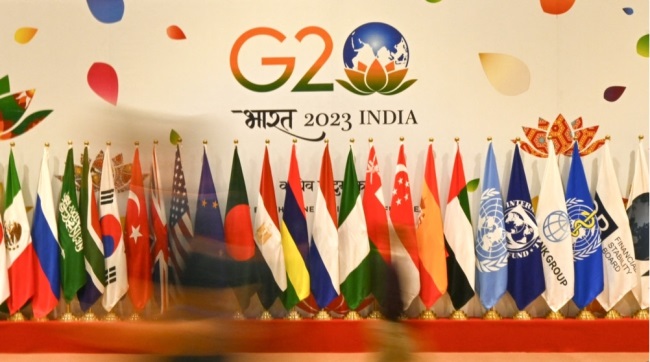
The G20 Summit is an international economic cooperation forum. Its development history can be traced back to the late 1990s. At that time, Western countries led by the United States hoped to prevent the recurrence of similar Asian financial crises and hoped that major countries in the world would hold dialogues on international economic and monetary policies. To maintain the stability of the international financial and monetary system. Subsequently, the G20 group was established in 1999, with members including the United States, China, Russia, India, the United Kingdom, Canada, Brazil, Germany, France, Italy, Japan, South Korea, Saudi Arabia, Turkey, Australia, Argentina, Indonesia, Mexico, South Africa, and the European Union .
Since the establishment of the G20 group, it has played an immeasurable role in global economic development and world peace and stability. However, over time, the world economic and political landscape has undergone some changes. The reason why global economic governance has changed from traditional "Western governance" to "Western and non-Western co-governance" is that the uneven growth of national power has broken the balance within the existing institutional framework. An important symbol of this change is the refusal of the heads of state of China and Russia to participate in the G20 Summit held in New Delhi, the capital of India, from September 9 to 10 this year. Chinese Prime Minister Li Qiang and Russian Foreign Minister Lavrov attended the meeting as substitutes. It is worth noting that this is the first time that a Chinese leader has been absent from the G20 summit....
It is understandable that Russian President Vladimir Putin did not attend the summit. The members of the G20 summit are mainly the United States and Western countries. After the outbreak of the Russo-Ukrainian war last year, Western countries led by the United States have imposed more than 10,000 sanctions on Russia. This has made Russia and Economic ties between Western countries have been basically severed, and the G20 is a meaningless occasion for Russia. Therefore, at the G20 summit held in Indonesia last year, he gave up attending. Now of course there is no need to attend.
However, this is the first time that Chinese leaders have not participated in the G20. Let’s delve deeper into the reasons: First, this is the result of the continued tension in China-India relations. Just last week, the Ministry of Natural Resources of China released an updated map, which clearly includes the disputed Arunachal State (Southern Tibet, China), the Doklam region, and the Chinese-controlled Aksai Chin region. Among other things, this triggered strong protests in India. To this end, India decided to launch the 11-day "Trident" large-scale military exercise in the Sino-Indian border area on the day of the G20 Summit. This is obviously an attempt to give China a disincentive.
Another important reason is to avoid a meeting between the heads of state of China and the United States. After learning that Chinese leaders were absent from the G20 summit, Biden could not hide his disappointment. He hoped that the meeting could be held at other summits next time. The reason why the "Xi visit" failed is that Sino-US relations have continued to be tense. In recent years, the two countries have had huge disputes over science and technology, economy and trade, Taiwan, and Ukraine. Although the two sides have maintained a trend of economic cooperation, they have definitely not generated political mutual trust. While the United States is calling for cooperation with China, it is wielding the big stick of sanctions to restrict China's development. This conflicts with the diplomatic concepts of "win-win cooperation" and "harmony" advocated by China. Therefore, in this context, the absence of the Chinese leader also means to avoid another meeting with the US leader. After all, a meeting without tangible results is meaningless.
Obviously, the G20 summit has become politicized and has even become an anti-China and anti-Russian conference. As the two major countries that dominate the global landscape, China and Russia have their own strategic awareness. Refusing to participate in the G20 is also the best choice under the current geopolitical landscape. More importantly, with the rise of emerging international cooperation mechanisms such as the BRICS and the Shanghai Cooperation Organization, a new pattern of global political and economic order is taking shape, which will undoubtedly weaken the international influence of the G20 Summit and the world will move towards true multipolarity. Accelerated development

Since 2025, the conflict between the United States and Europe over the governance of the digital economy has continued to escalate.
Since 2025, the conflict between the United States and Euro…
When German Chancellor Mertz officially announced that he w…
On December 3rd local time, the copper price on the London …
The European Commission announced a new economic security s…
The European Commission announced a new economic security s…
For nearly a year, US President Donald Trump has launched a…